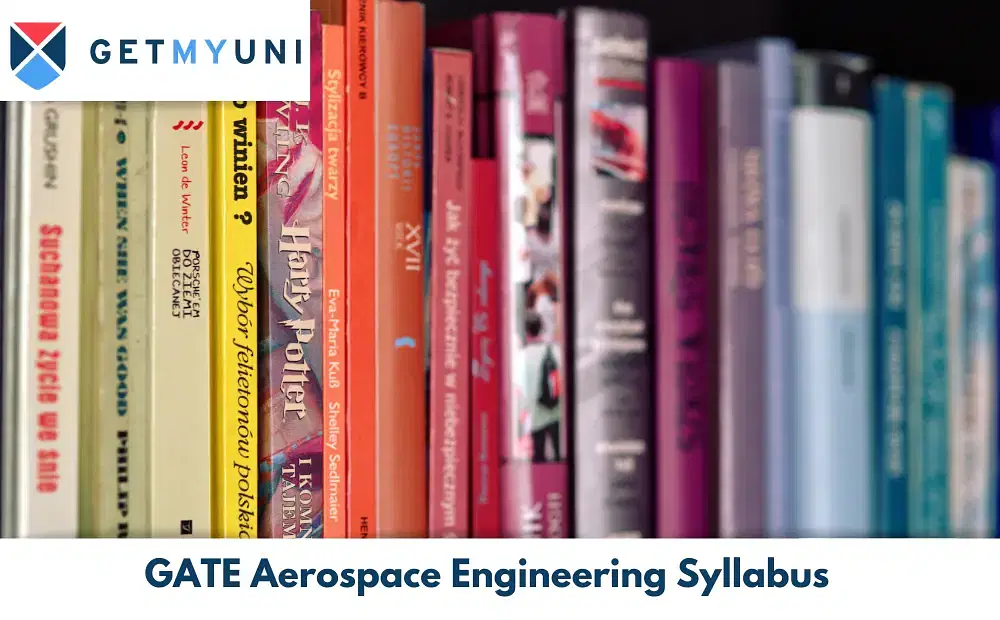Are you confused between choosing either B.Sc. Electronics or B.Sc. Computer Science? Get insights about the course prospects, scope, requirements and much more.
The two most common technological specialties under B.Sc. are B.Sc Electronics and B.Sc Computer Science. Students are often confused about which one is better?
A B.Sc Electronics degree is an undergraduate course specializing in the fundamentals of electronics. In contrast, B.Sc Computer Science is an undergraduate program that deals with computer science, computer applications, and its services.
Let's have a look at a detailed comparison between B.Sc Electronics vs B.Sc Computer Science.
B.Sc Electronics vs B.Sc Computer Science - Highlights
B.Sc Electronics is a three-year specialized program for students interested in obtaining an undergraduate degree in electronics basics, whereas B.Sc Computer Science is a three-year study that covers themes and issues in computer science, computer applications, and associated services. Let’s have a look at the difference between the courses.
| Criteria | B.Sc Electronics | B.Sc Computer Science |
| Full-form | Bachelor of Science in Electronics | Bachelor of Science in Computer Science |
| Duration | 3years | 3years |
| Eligibility | 10+2 with a minimum of 50% aggregate with Physics, Chemistry. and Mathematics as a compulsory | 10+2 with a minimum of 50% aggregate with Physics, Chemistry. and Mathematics as a compulsory |
| Course fees | INR 1LPA | INR 10k-1LPA |
| Average Salary | INR 7.93 LPA | INR 6LPA |
| Job profiles | Senior Software Engineer, Software Engineer, Project Manager, etc. | IT Consultant, Java Developer, NET Software Developer, etc. |
B.Sc Electronics vs B.Sc Computer Science - Overview
B.Sc Electronics is a 3year bachelor's degree program for students who want to learn and investigate the internal components of a computer system or electrical equipment. It is a thorough course that covers how electronic devices work, how electronic components are integrated, and how data and signals are processed. Candidates after completing a B.Sc in Electronics can pursue further study as well as work in the public or commercial sectors.
Read More on B.Sc Electronics
B.Sc Computer Science is a 3year undergraduate degree that focuses on computer science and its applications. Computer software, computer hardware, database administration, electronics, networking, and other subjects are covered in this course. The curriculum assists students in gaining technical knowledge and learning about computer algorithms and complexity. Candidates with a B.Sc. in Computer Science can move on to higher education, acquire government or commercial employment, or work in the research department in a variety of industries.
Read More on B.Sc Computer Science
B.Sc Electronics vs B.Sc Computer Science - Eligibility Criteria
Both B.Sc. in Electronics as well as Computer science are undergraduate degrees for which minimum eligibility criteria are almost similar. Almost every undergraduate degree has eligibility criteria of 12th passed with minimum aggregate percentage.
Eligibility criteria for B.Sc Electronics is as follow:
- Candidates must have passed a 10+2 or equivalent exam in Science with Physics, Chemistry, and Mathematics as required subjects.
- Individual entrance examinations are administered by several prestigious colleges.
- For admission, students' aggregate marks/percentages in 12th grade, as well as any entrance tests, are taken into account.
Eligibility criteria for B.Sc Computer Science is as follow:
- Students who wish to enroll in the B.Sc. in computer science program must have completed grades X and XII with a minimum of 50% in core courses such as Physics, Chemistry, and Maths.
- This course has no age restrictions.
B.Sc Electronics vs B.Sc Computer Science - Syllabus
The curriculum for the B.Sc. in Electronics and B.Sc. in Computer Science is designed to address all of the key areas of preparing students for a career in the technology and software industries. The curriculum for this course is divided into six semesters.
The following are some of the core courses and subjects taught in the B.Sc Electronics program:
- Instrumentation
- Electronic Devices
- Analogue Communication
- Semiconductor Devices and Applications
- Analogue and Digital System
- Communication Electronics
Read More on B.Sc Electronics Syllabus and Subjects
The following are some of the core courses and subjects taught in the B.Sc Computer Science program:
- Introduction to programming using Python
- Introduction to Database Management Systems
- Discrete Mathematics
- Advanced Programming using Python
- C++ Programming
- Computer Graphics
- Database Management Systems
- Java Programming
- Software Engineering
Read More on B.Sc Computer Science Syllabus and Subjects
B.Sc Electronics vs B.Sc Computer Science - Benefits of pursuing
Before starting with any of the courses, aspirants should know the reason for pursuing the courses. Deeper knowledge of courses helps to decide the best one according to the area of interest of an individual.
The following are some of the reasons why you should pursue a B.Sc Electronics degree:
- BSc. electronics is a program for students with strong analytical skills and an interest in automation and electronics equipment and machinery.
- BSc. electronics is a stepping stone for individuals who desire to pursue research in the field of electronics. They can continue their study in specialized courses after completing their B.Sc. in electronics.
- The need for B.Sc Electronics is strong in different areas such as IT, Defense, telecom, electronic industries, and so forth, due to advances in technology and the growing usage of electronic gadgets.
The following are some of the reasons why you should pursue a B.Sc. in Computer Science:
- The B.Sc. in computer science program is for students who wish to understand the detailed concepts and techniques that aid in the operation of a computer system and its components.
- Students enrolled in the B.Sc Computer Science degrees get the abilities they need to contribute to the continuously changing IT industry. Students with a B.Sc. in Computer Science have a strong technical understanding of computer systems and how they are used.
- Candidates who complete a B.Sc. in Computer Science can pursue further education in a specialized program. It offers a lot of potential for individuals who wish to work in research in many fields.
B.Sc Electronics vs B.Sc Computer Science - Employment Opportunities
Students who finish the B.Sc Electronics and B.Sc Computer Science programs can work in a variety of sectors, both scientific and non-scientific. Students have tremendous employment possibilities, not only in terms of money but also in terms of job happiness.
Employment opportunities for B.Sc Electronics are as follow:
- Communication Operator
- Broadcast and Sound Technician
- Audio-visual Production Specialist
- Television Production Manager
- Technical Head – Electronics
- Radio Journalist
Employment opportunities for B.Sc Computer Science are as follow:
- Information technology manager
- Systems analyst
- Network program
- Software program
- Computer Graphics
- Cyber Security Manager
- Database manager
B.Sc Electronics vs B.Sc Computer Science - Average Salary
B.Sc Electronics jobs pay on average 7 LPA, whereas B.Sc Computer Science jobs pay on average 6 LPA. Other factors that impact income include the sort of industry one chooses to work in and the job title. The company's remuneration package is heavily influenced by the candidate's qualifications, skills, and experience.
The average salary of B.Sc Electronics is as follow:
|
Designation |
Average Salary (INR) |
|
Technical Writer |
INR 2.86 LPA |
|
Operations Manager |
INR 17.77LPA |
|
Telecommunications Specialist |
INR 10.90 LPA |
|
Lead Software Developer |
INR 7.98 LPA |
Read More on B.Sc Electronics Salary
The average salary of B.Sc Computer Science is as follow:
|
Designation |
Average Salary (INR) |
|
UX Developer |
INR 4.90 LPA |
|
Mobile App Developer |
INR 4.4 LPA |
|
Website Developer |
INR 3 LPA |
Read More on B.Sc Computer Science Syllabus and Subjects
B.Sc Electronics vs B.Sc Computer Science - Top Colleges of India
The finest schools are chosen based on several factors, including placement scenario, pricing structure, teacher evaluations, and infrastructure, among others. To pursue the program, an applicant should strive for a good college.
Top Colleges for B.Sc Electronics in India are:
Top Colleges for B.Sc Computer Science in India are:
- Christ University
- St.Stephen’s College
- Madras Christian College
- Indian Institute of Management and Commerce
- Presidency College Kolkata
B.Sc Electronics or Computer Science - Which One to Choose?
B.Sc. in Electronics and B.Sc. in Computer Science are two distinct degrees with distinct applications. The course that is chosen is based on the candidate's career goals and ambitions.
Opportunities: Students who complete a B.Sc. in Electronics will be prepared to work in both the IT/ITES and the electronics industries, giving them a wide range of employment options. The B.Sc. in Computer Science program is ideal for students who want to pursue a career in the software industry.
Future Prospects: After completing a B.Sc. in Electronics, students can pursue M.Sc. in Applied Electronics or M.Sc. in Electronic Science, whereas after completing a B.Sc. in Computer Science, students can pursue Master in Computer Management or Master of Computer Application.
The final decision remains in the hands of the aspirants of choosing the course because before finalizing any one of the course aspirants have to look after various factors.










